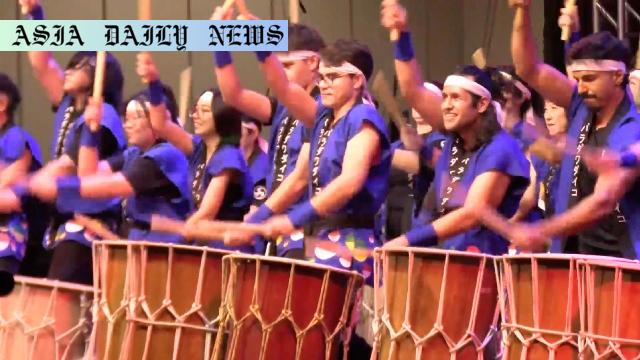Japan Festival kicks off in Sao Paulo, showcasing Japanese culture, cuisine, and traditions in one of the largest events of its kind.

Introduction to the Japan Festival
The Japan Festival, a vibrant annual celebration, has officially kicked off in the bustling city of Sao Paulo, Brazil. This event is renowned for being one of the largest gatherings of Japanese culture outside of Japan, an impressive reflection of Brazil’s extensive Japanese immigrant community. With a rich assortment of activities, the festival offers a true blend of cultural appreciation, including exquisite culinary offerings, traditional performances, and immersive experiences that transport visitors to Japan’s rich heritage.
Cultural Significance of the Festival
The festival’s importance extends far beyond its vibrant displays and delicious fares. Brazil is home to the largest Japanese diaspora in the world, with over 1.5 million Japanese descendants. Events like the Japan Festival are pivotal for preserving and sharing this fascinating cultural heritage with wider audiences. For those unfamiliar with Japanese traditions, the festival acts as a gateway, introducing them to the country’s customs and modern-day nuances in a delightful, engaging way. Various prefectural associations have meticulously brought pieces of their region to Sao Paulo, fostering cross-cultural understanding.
Delectable Culinary Experiences
One of the main attractions at the Japan Festival is undoubtedly its food corner, where approximately 40 prefectural associations display delicacies from all over Japan. From hand-rolled sushi and matcha green tea to regional sweets and savory treats, guests are treated to authentic dishes that encapsulate Japan’s culinary diversity. A visitor noted enjoying these flavors as a motivation to visit Japan someday. This makes the festival a unique culinary journey that tantalizes taste buds and introduces Brazilian audiences to authentic Japanese flavors.
Traditional Performances and Entertainment
Adding to the festival’s allure are cultural showcases such as traditional Japanese drum performances. These displays not only entertain but also serve to educate audiences about ancient Japanese art forms. The powerful beats of taiko drums fill the air, creating an electrifying atmosphere that captures Japan’s essence. Such performances are deeply rooted in Japanese culture, often symbolizing celebration and unity. For attendees unfamiliar with these art forms, the experience is both exciting and enlightening.
Visitor Experience and Reception
The festival attracts a diverse crowd of visitors, from Japanese descendants reclaiming their heritage to Brazilians curious about Japanese culture. The overall reception has been overwhelmingly positive, with attendees praising the event’s authenticity and inclusiveness. The festival also fosters a sense of community among those involved, from the organizers to the performers. With expectations of over 200,000 visitors over the weekend, the Japan Festival is poised to deliver unforgettable memories for all who attend.
Conclusion: A Bridge Between Cultures
The Japan Festival in Sao Paulo is much more than an entertainment event; it is a celebration of cultural exchange and unity. As Brazil and Japan share longstanding ties, this festival serves as a symbolic bridge that brings two vibrant cultures closer together. Through food, performances, and shared experiences, the festival invites its attendees to immerse themselves in the beauty of Japanese traditions while celebrating the diversity found in Brazil. As the festival continues to grow, it promises to remain a cornerstone of cultural exchange and celebration.
Commentary
A Celebration of Connections
The Japan Festival in Sao Paulo offers an extraordinary opportunity to witness the seamless blend of two culturally rich nations—Japan and Brazil. With Brazil housing over 1.5 million Japanese descendants, the importance of such cultural events cannot be overstated. The festival acts as a cherished occasion where traditions are preserved, celebrated, and shared with people of all backgrounds. It fosters a sense of pride among the Japanese-Brazilian community while introducing others to the delights of Japanese heritage.
The Power of Food and Performance
Few things unite people more effectively than food, and the Japan Festival capitalizes on this universal truth. The culinary offerings at the festival represent more than just food; they tell stories of Japan’s prefectures, traditions, and seasons. Similarly, traditional drum performances evoke awe and admiration, offering attendees a glimpse into the rhythmic heart of Japanese celebrations. Together, these elements create a multi-sensory experience that leaves a lasting impression on all visitors.
A Model for Cultural Exchange
Events like the Japan Festival highlight the importance of cultural exchange in today’s interconnected world. They provide a platform where individuals can learn about and appreciate traditions different from their own. The festival is a testament to how cultural celebrations can act as bridges, fostering understanding and unity between diverse communities. Particularly in a globalized world, such efforts to celebrate and share culture hold significant value, promoting harmony and mutual respect among various peoples.
Looking Ahead
As the Japan Festival continues to grow in prominence, it sets an inspiring example for other cultural events around the globe. It emphasizes the beauty of diversity and the joy of shared experiences, reminding us of the richness that cultural exchange brings to our lives. For visitors, organizers, and everyone involved, the festival is not just a momentary celebration but a lasting celebration of heritage, unity, and mutual appreciation.


